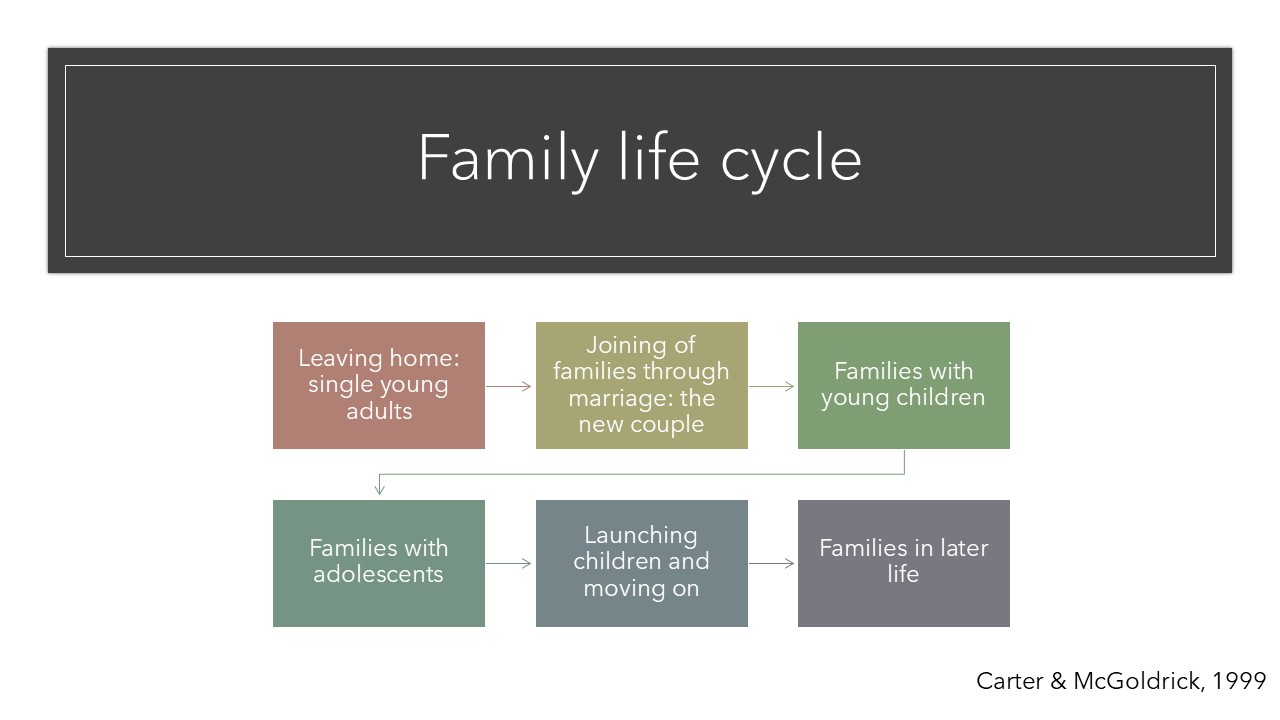The step parent, particularly the stepmother, has been depicted in the media throughout the 20th Century as an archetype, think Disney's wicked stepmothers!
Some families may grow with children of all ages at any stage of the family life cycle as couples separate or divorce then establish new relationships or remarry and establish new households with their children. Children may be born or adopted formally or informally within the newly formed family.

A challenge for the parents can be the roles that are taken with each and all children which may also be influenced by the children's acceptance of their stepparent into the family life. The adjustment of step family members is related to the beliefs of all family members about the role of the step parent and how clear their role is within the family. Some families have even changed the title of the step parent and created a new name. The process of blending can bring about feelings of confusion, frustration, disappointment, stress, resentment and loneliness for step family members. Step family routines, different from first-relationship family routines may take negotiation and flexibility to be successful.
In my work with blended families, I have taken into consideration the aspects of life causing stress to the family and created space for these to be explored and for solutions, where possible, to be found. Parents have found it valuable to have different conversations and not to necessarily take the full burden of parenting 'their' children themselves but to consider their partner's strengths as a resource and to work as a team.
Stepparents can bring a wealth of resources with them: willingness to parent, energy, new ideas, a new extended family, a network of friends and community, a renewed sense of security and/or stability.
Some stressors for the blended family may include:
co parenting, navigating visits, emotional challenges such as jealousy, loyalty, cultural differences, conflict within the home, navigating conflict with ex partners, struggles adjusting to change, domestic disputes, financial, work-related, political pressures, immigration, community pressures, lack of community/village support, secrets, legacies, death, illness and/or accidents.
Ways I can help support:
- pre-cohabiting or pre-marital relationship counselling
- relationship communication and conflict resolution skills
- support with child developmental stages and family transitions
- relationship counselling before having a child together
- opportunities to connect with younger children learning new parenting skills such as setting and maintaining boundaries
- learning skills to support children emotionally
If I can help in any way, please get in touch and we can find an intervention that suits your family.
